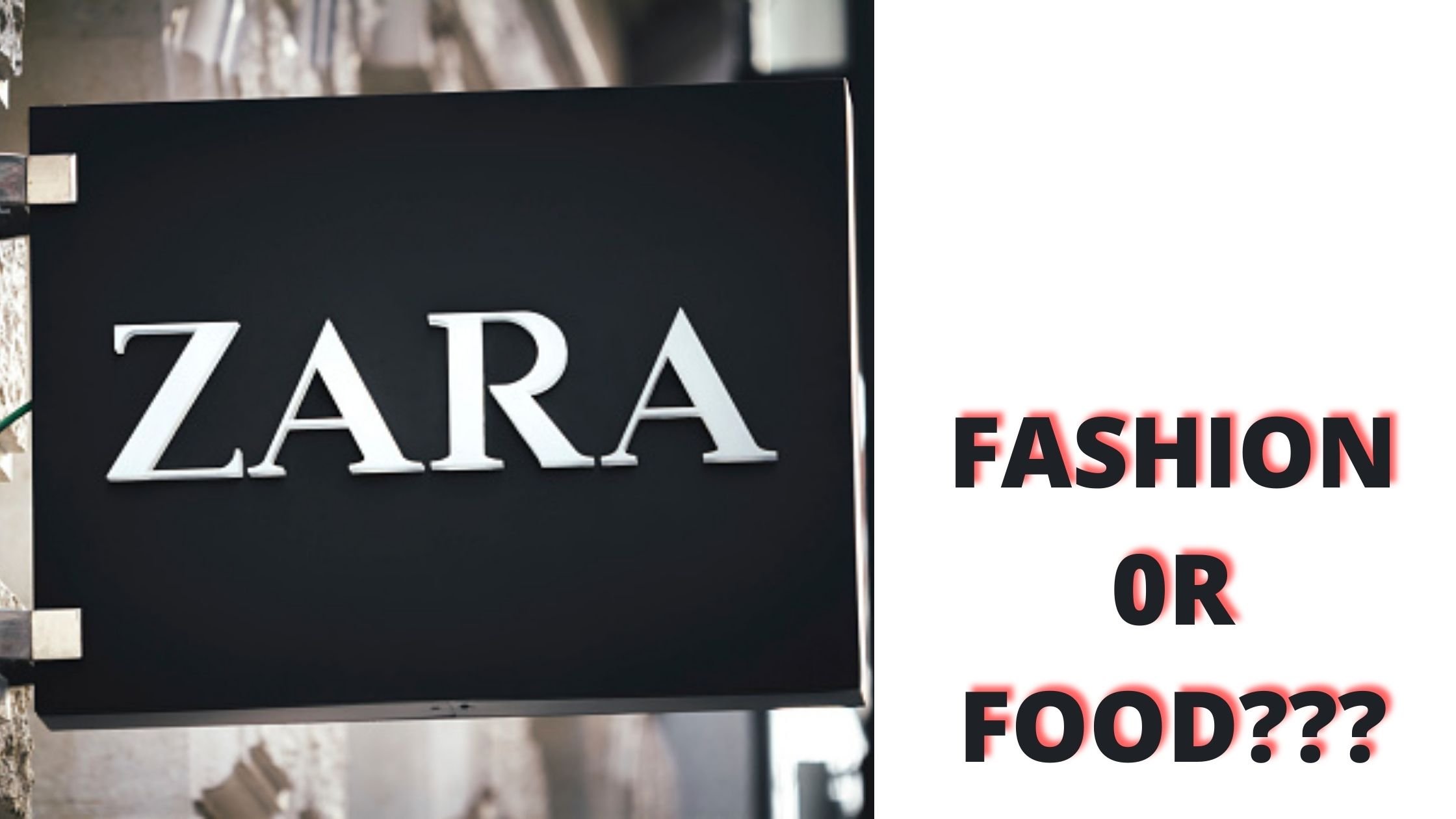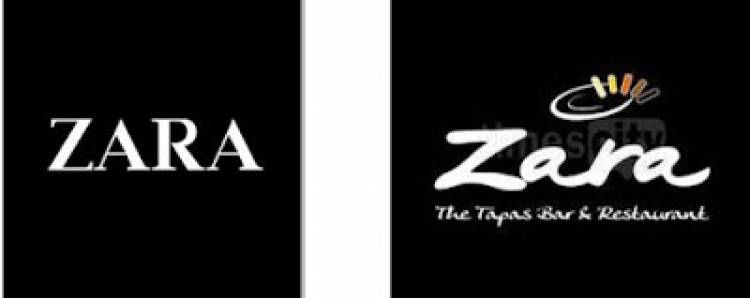Case Study on Zara: Fashion or Food?
A recent judgment articulated by the Delhi High Court on May 19, 2015, would have given a big relief to International Fashion Brand ZARA. In this case, the proprietors of the fashion brand ZARA recorded a suit for encroachment and passing of their notable picture ZARA against the proprietors of a restaurant in Chennai which was utilizing the name ZARA TAPAS BAR.

Case Study on Zara: Fashion or Food?
A recent judgment articulated by the Delhi High Court on May 19, 2015, would have given a big relief to International Fashion Brand ZARA. In this case, the proprietors of the fashion brand ZARA recorded a suit for encroachment and passing of their notable picture ZARA against the proprietors of a restaurant in Chennai which was utilizing the name ZARA TAPAS BAR. [INDUSTRIA DE DISENO TEXTIL S A. V. ORIENTAL CUISINES PVT LTD and ORS (CS (OS) 1472 of 2013)].

In the suit filed in 2013, Plaintiff fought that its trademark ZARA is a multi-nationally well-reputed trademark that was began as ahead of schedule as 1975. Since 1975, the mark has been used by Plaintiff consistently and its reputation has developed with a presence in more than 86 nations and a turnover of more than 10,541 million Euros. All the more especially, in India, the Plaintiff has had a presence since 1986, when it began its assembling tasks/operations. Plaintiff's first retail source opened in India a while in 2010 and within the period of two years, its yearly turnover was Rs. 384 crores. The Plaintiff additionally has registrations for the mark in India.
Defendant received the name ZARA TAPAS BAR for its restaurant at some point in 2003. It was uncovered during the court procedures that Defendant adopted the name after an outing to Paris.
In 2005, Plaintiff came to know about an application filed by Defendant in 2003 for the mark ZARA TAPAS BAR. Plaintiff quickly contradicted the application. The opposition proceedings are as yet forthcoming. Then, Defendant moved toward the Plaintiff to go into a co-existence agreement, which offer was dismissed by the Plaintiff.
ISSUES CAME UP FOR CONSIDERATION, IN THIS CASE, ARE AS FOLLOWS:
Regardless of whether there is any deceitful similarity between the mark ZARA of the Plaintiff and ZARA TAPAS BAR of the Defendant – While Defendant battled that it utilized the mark ZARA TAPAS BAR overall and not ZARA per se, evidence was to the contrary. It was discovered that Defendant was utilizing either ZARA per se to allude to its restaurant or when using the mark ZARA TAPAS BAR, the mark ZARA was multiple times all the more unmistakably composed. In the conditions, it was discovered that, there is a beguiling similarity between the Plaintiff's mark and the mark as being utilized by Defendant.
Whether the adoption of the mark ZARA TAPAS BAR was deceptive or false or a genuine appropriation with the end goal that the Defendant is qualified for a simultaneous client of the mark – The Defendant fought that the selection of its mark was straightforward and that it had been using it for longer than 10 years. Respondent further fought that ZARA was a typical name in different nations and was also a dictionary word. In any case, Defendant's disputes were scattered by an article introduced by Plaintiff which expressed that the mark was embraced by Defendant following an outing to Paris in 2003, at that time, in Paris, there were 40 ZARA stores. Further, the Court found that the word ZARA was neither non-exclusive nor engaging nor a dictionary word (taking everything into account), and the way that the Defendant was using ZARA all the more conspicuously demonstrated that the Defendant was attempting to ride on the reputation of the Plaintiff's ZARA mark.
Regardless of whether the mark ZARA is utilized by numerous entities and has become Publici Juris – Defendants depended on various third-party enrolments including the word ZARA to demonstrate its case. None of the enrolments were discovered to be alike to the mark ZARA and Defendant's case was dismissed.
Regardless of whether there is an incredible deferral in filing the suit and whether it adds up to passive consent with respect to the Plaintiff – Defendant fought that Plaintiff decided to sit tight for eight and a half years from 2005 to 2013 to file the instant suit. In the wake of thinking about different points of reference on this issue, the Court decided that the defer neither sums to passive consent nor did it disentitle the Plaintiff to the alleviation of substitute directive if the Plaintiff had the option to present out a defense on benefits.
Regardless of whether there is concealment/covering of material facts in order to disentitle Plaintiff to the discretionary relief of injunction– Defendant battled that Plaintiff had made a bogus averment about its information on the Defendant's utilizing the name ZARA TAPAS BAR. Offended party's conflict that it came to know about the utilization by the Defendant just based on a letter in 2011 was in opposition to the averments made by the Plaintiff in a testimony filed by it in 2008. It was held that a party looking for ex-parte ad interim injunction is required to make full disclosure however when the issue is heard on benefits, both the parties are under the watchful eye of the Court. The error of certain facts except if it is malafide won't disentitle the Plaintiff to the relief of injunction.
Regardless of whether the Plaintiff's mark ZARA is a notable brand name/trademark and had a trans-fringe reputation or in the option the Defendant is qualified for utilizing the mark ZARA TAPAS BAR comparable to class 25 or besides hospitality restaurant business co-broad with the Plaintiff – The Plaintiff put on record a large group of reports to show that ZARA was a notable mark and had a trans-outskirts reputation. The Court considered documents up to the year 2003 to decide trans-outskirts reputation since Defendants were by all appearances appeared to have begun their ZARA TAPAS BAR in 2003. The Court likewise considered that the Plaintiff had an enrolment for the mark ZARA since 1993 in India and had fabricating activities in India since 1986. In view of this and on the thought of the documents, the Court held that the mark ZARA was a well-known mark and had a trans-border reputation.
BY-
Ananya Pandey












